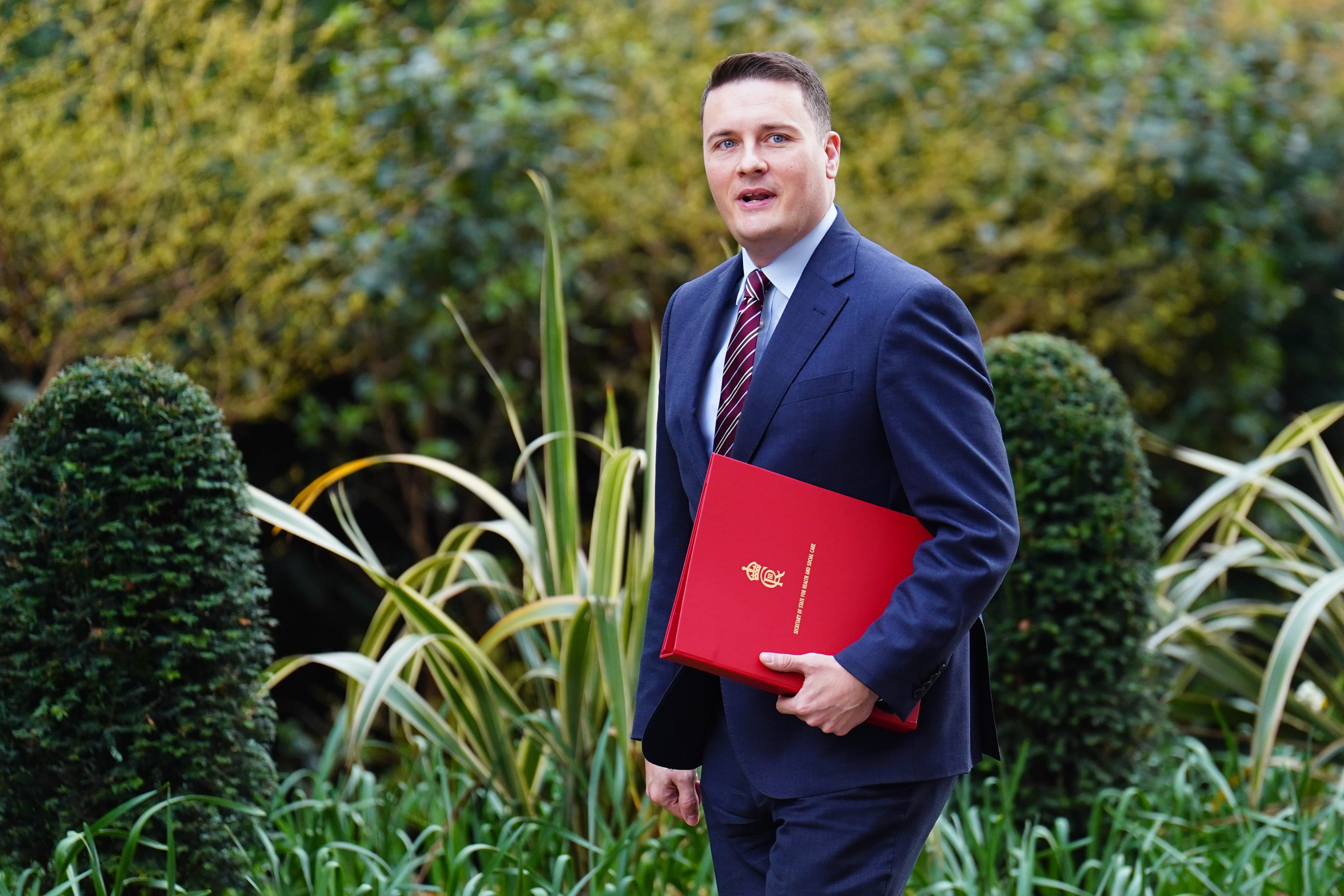Wes Streeting defended Labour’s controversial national insurance hike as the health secretary accused Reform UK and the Conservatives of plotting to pull billions of bounds of funding from the NHS.
As the tax rise comes into effect today, Mr Streeting has challenged critics including Nigel Farage and Kemi Badenoch to explain how they would pay for a reversal of the policy change.
The 2p increase to employer national insurance has been criticised by opposition parties, business chiefs and top economists, who have linked it to the stagnant economy, since it was unveiled by Rachel Reeves back in October.

But, in a bid to get back on the front foot, Labour has argued the money raised by the tax hike is being used to fund improvements to the health service including an extra two million operations, scans and appointments for patients.
In letters to Mr Farage and Ms Badenoch, Mr Streeting said the opposition party leaders’ plans would “cut this funding and leave our NHS more than £25bn poorer”.
“So, will you finally be straight with voters and set out which areas of current NHS funding you would reverse in government?” the health secretary asks.
Addressing the Reform leader directly, Mr Streeting hit out at his previous support for a move to an insurance-based funding model for healthcare in the UK.
“That model could mean paying more than £1,300 to visit A&E, over £120 for a GP appointment, £1,000 to call an ambulance, the list goes on,” Mr Streeting warned.
He added: “This might be pocket change for you, but to ordinary working people these costs would be nothing short of catastrophic.”
With just weeks until the 1 May local elections, Mr Streeting said: “It is time to look under the bonnet and understand what your plans are”.
Labour has been increasingly on the offensive against Reform in recent weeks as it seeks to stem the flow of voters towards Mr Farage’s party.
Mr Streeting asked: “What aspects of Labour’s NHS investment would you cut as a result of scrapping the NICs changes?
“How would your insurance-based model work, how much will this alternative healthcare system cost, and what would happen to patients who can’t afford to pay?”
In his letter to Ms Badenoch, he wrote: “You would cut this funding and leave our NHS more than £25bn poorer as a result. So, will you finally be straight with voters and set out which areas of current NHS funding you would reverse if in government?
“Would it be improved pay for nurses? Funding for GP surgeries? New radiotherapy machines?”
Despite trying to take the fight to rivals over the tax hike, Labour faces an uphill battle to convince business chiefs and the public it was the right decision.
The chancellor was forced into the measure after ruling out any changes to VAT, income tax and employee national insurance during the general election, moves economists have said would have raised similar sums while acting as less of a drag on growth.
Retail and hospitality bosses warned on Sunday that high street jobs and investment plans have been put at risk by the tax hike, with the rate jumping from 13.8 per cent to 15 per cent overnight. The salary threshold at which companies pay the tax also dropped from £9,100 to £5,000.
UK retailers have warned that hiring plans, particularly for part-time workers, will be held back as a result.
The British Retail Consortium (BRC) said changes to NICs and wages will cost retailers another £5bn over the next year.
It said it will cost shops 10 per cent more to employ workers due to the changes, and 13 per cent more for part-time staff.
Helen Dickinson, chief executive of the BRC, said: “A recent survey of retail finance directors showed that half were planning to reduce hours and workers as a direct result of the employer NIC hike.
“It will be part-time jobs which take the biggest hit.
“Part-time retail jobs hit their lowest level since records began in 1996, and have fallen by 200,000 in the last seven years.
“While the government’s welfare reforms aim to increase the numbers in work, this week’s cost increases will kick away the ladder for many who are just getting their first foothold.”
Meanwhile, the chief executive of pub giant Greene King said its investment plans would be impacted as a result of swallowing larger-than-expected costs following the October budget.
Nick Mackenzie said: “Everyone in the industry is facing a barrage of costs that are hitting them at the same time, with the minimum wage rise, NICs, business rates.
“We are still investing heavily but there are areas where we have trimmed our investment plans because we have to be sensible about managing these costs.”

